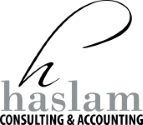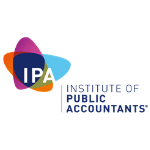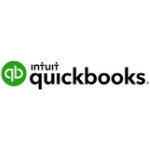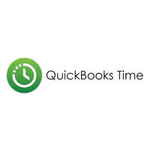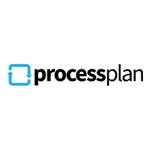Blog Layout
Award Changes in 2020
February 28, 2020
Employers take note of these new rules
Following a decision of the Full Bench, the Fair Work Commission has finalised arrangements for new annualised salary clauses to be inserted into a number of modern awards with effect from 1 March 2020. These changes introduce important new practices for HR and payroll aimed at reducing “wage theft” and non-compliance with awards.
What do employers need to do?
Review employment contracts and update HR and payroll practices to comply with the new obligations to audit annual salaries, record hours of work and backpay any shortfall when annual salaries are audited against modern award entitlements.
Modern awards impose new annual wage obligations
Employers with employees covered by the modern awards listed in the industries/occupations below are highly likely to require amendments to employment contracts and adjustment to payroll and HR practices, in preparation for annual salary changes to be introduced on 1 March 2020:
• Banking, Finance and Insurance Award 2010
• Broadcasting and Recorded Entertainment Award 2010
• Clerks – Private Sector Award 2010
• Contract Call Centres Award 2010
• Health Professionals Award 2010
• Hydrocarbons Industry (Upstream) Award 2010
• Horticulture Award
• Hospitality Industry (General) Award 2010
• Legal Services Award 2010
• Local Government Industry Award 2010
• Marine Towage Award 2010
• Manufacturing and Associated Industries and Occupations Award 2010
• Mining Industry Award 2010
• Oil Refining and Manufacturing Award 2010
• Pastoral Award 2010
• Pharmacy Industry Award 2010
• Rail Industry Award 2010
• Restaurant Industry Award 2010
• Salt Industry Award 2010
• Telecommunications Services Award 2010
• Water Industry Award 2010
• Wool Storage, Sampling and Testing Award 2010
Almost all employers employ clerical and administrative employees. Therefore, given that the Clerks – Private Sector Award 2010 is one of the awards affected, many employers may need to seek legal advice to ensure award compliance.
What are the changes?
Depending on which modern award(s) apply to your workforce, the model clauses will impose a number of detailed mandatory requirements on employers who pay employees an annual wage in satisfaction of specific modern award entitlements. For example, a requirement to advise employees in writing of:
• which provisions of the modern award that apply to them will be satisfied by payment of an annualised wage
• the mathematical method by which the annualised wage has been calculated, including specification of each separate component of the annualised wage and any overtime or penalty assumptions used in the calculation
• the outer limit number of ordinary hours which would attract the payment of a penalty rate under the award and the outer limit number of overtime hours which the employee may be required to work in a pay period or roster cycle without being entitled to an amount in excess of the annualised wage under the award
• any excess hours of work that will not be covered by the annualised wage for which separate payments under the award would apply.
Employers are required by the new clauses to implement payroll and HR practices to ensure employees are at all times adequately compensated by the annual wage, including:
• Annual calculations of what the employee would have been paid under the award compared with the annualised wage actually paid, and perform reconciliations and back-pay any shortfalls within 14 days
• Keep a record of the starting and finishing times of work, and any unpaid breaks taken, of each employee subject to an annualised wage arrangement in order to perform the calculations and reconciliations
• Records must be signed by employees or acknowledged as correct in writing (including by electronic means) each pay period or roster cycle
Why have the changes been introduced?
It is common practice for employers to pay an overall annual remuneration to award covered employees which is intended to “set-off” and absorb all modern award monetary entitlements such as minimum wages, overtime rates, penalty rates and loadings that are otherwise separately payable under an award. Few employers audit these annual salaries on an annual basis to ensure the overall remuneration does in fact compensate employees for each individual award entitlement that falls due.
The new award obligations introduced by the Fair Work Commission are aimed at ensuring that award covered employees are properly compensated for the work they perform by ensuring annual remuneration received is adequately calculated and monitored to capture the full range of monetary benefits applicable under modern awards for the particular work performed.
How to comply?
The first step to ensure compliance is to understand which modern awards apply to your workplace, including the new changes, and whether employees are currently paid correctly for the work they perform.
Secondly, amendments to employment contracts and adjustments to HR and payroll practices are highly likely to be the most practical and efficient way to comply with the obligations imposed with effect from 1 March 2020.
Enterprise agreements
The new provisions in the modern awards will set the “base line” for the “better off overall test” in determining if an enterprise agreement should be approved by the Fair Work Commission and as such, will need to be considered in the context of bargaining for new enterprise agreements.
Failure to comply
From 1 March 2020, a failure to comply will amount to a breach of a modern award—colloquially referred to by the media as “wage theft”— and will attract civil penalties under the Fair Work Act 2009 (Cth).
Need help?
Get in touch with us
for a payroll review
to ensure all your employees are being paid correctly.
Haslam Consulting & Accounting Pty Ltd is a member of the Institute of Public Accountants in Australia.
Liability limited by a scheme approved under Professional Standards Legislation.
Haslam Consulting & Accounting acknowledges Traditional Owners of Country throughout Australia and recognises the continuing connection to lands, waters and communities.
We pay our respect to Aboriginal and Torres Strait Islander cultures; and to Elders past and present.
© 2025
Haslam Consulting & Accounting | Privacy Policy | Website by A Top Idea - Business Solutions - Toowoomba
